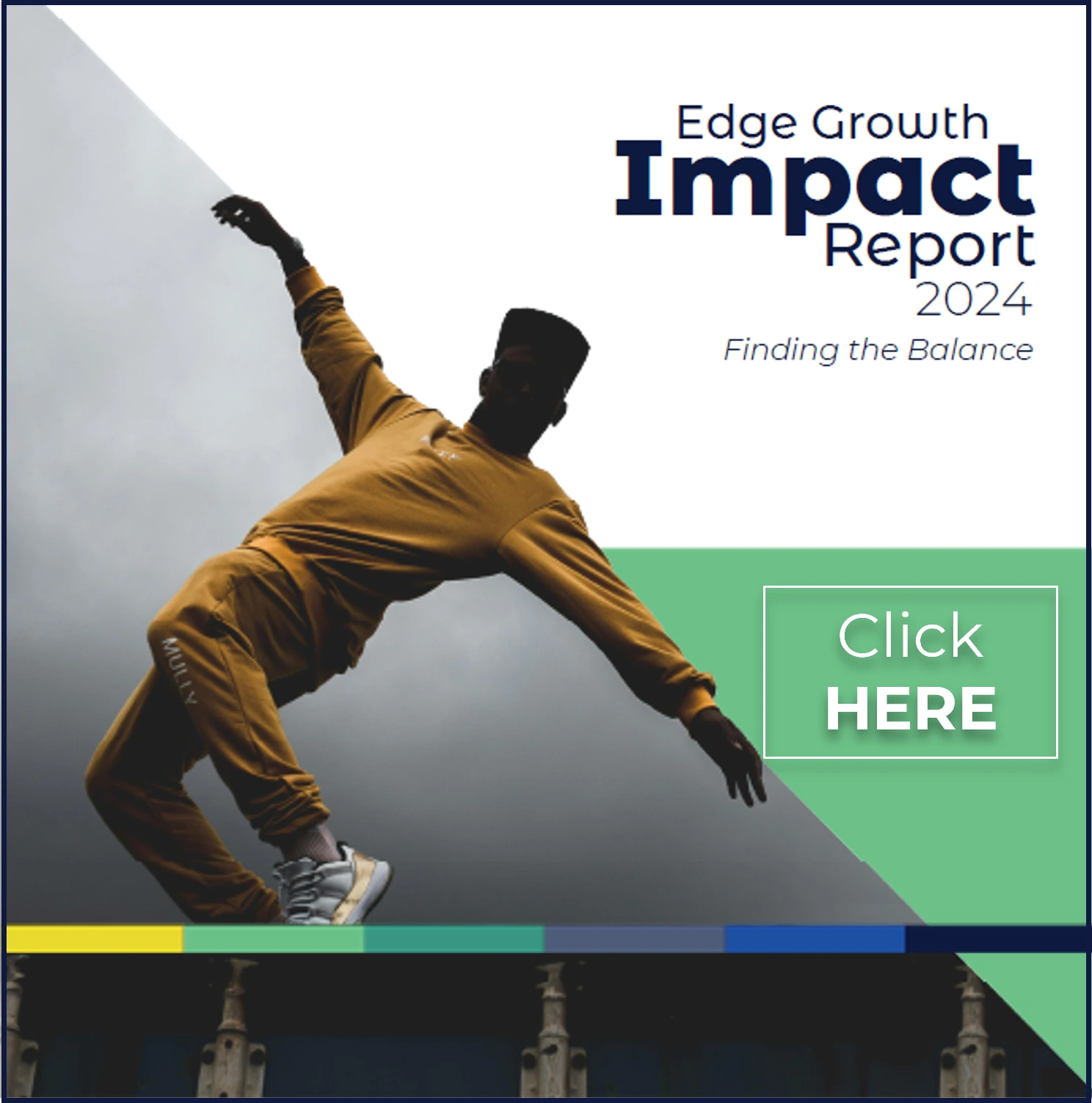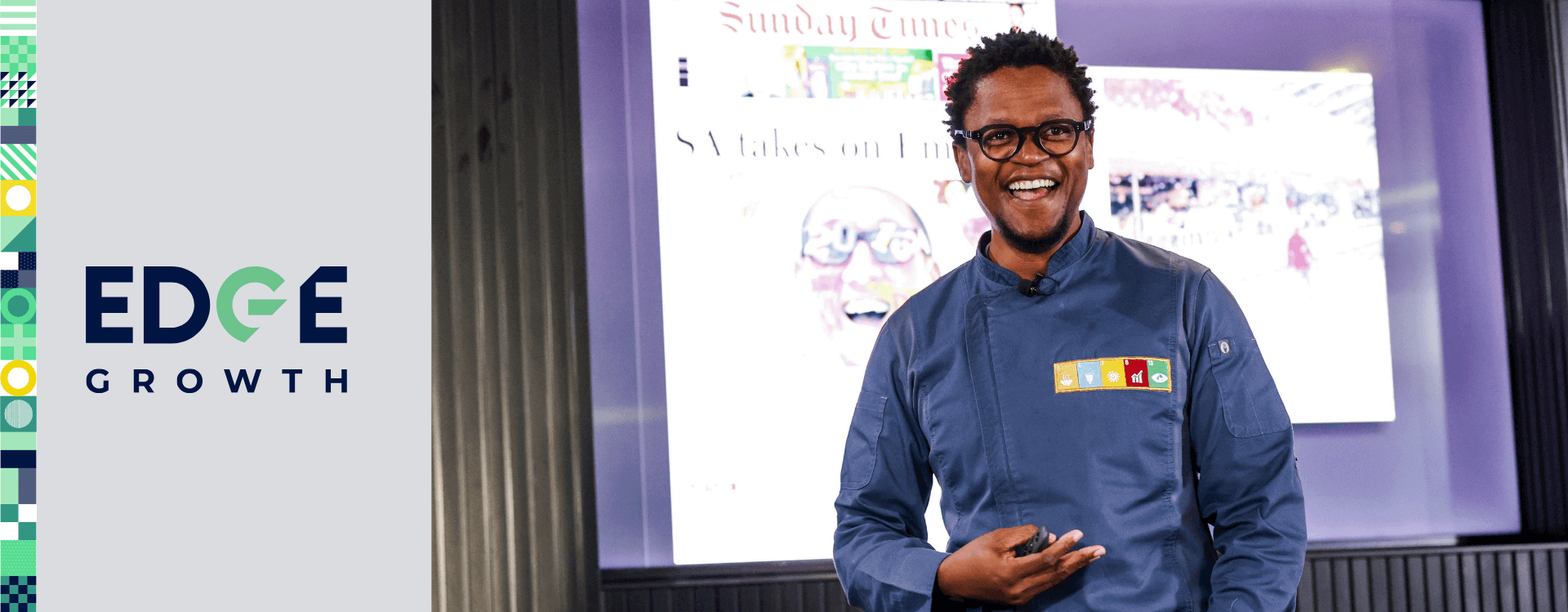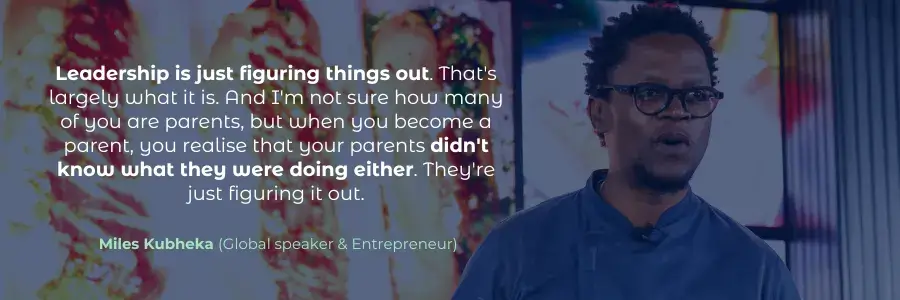
As the CEO of your business, you’re expected to have answers to every problem and industry expertise earned through years of climbing the corporate ladder. But what if the most transformative ideas come from unconventional leaders who break the rules?
Edge Growth hosted its first Investee Day, bringing together entrepreneurs, investors, and innovators to explore how unconventional thinking reshapes business success. The event showcased leaders who’ve crossed industry boundaries, sharing fresh perspectives and actionable insights to drive real innovation for SMEs.
Miles Kubheka was among the standout speakers, and his entrepreneurial journey perfectly exemplified the event’s core message: the most transformative business insights come from leaders who challenge industry norms and embrace innovative strategies.
He is a global speaker and entrepreneur who defies the traditional CEO mould. A former Microsoft systems engineer, he left a lucrative tech career to sell boerewors rolls at the Fourways Farmers’ Market through ‘Vuyo’s’ – a food business built around a fictional character from a South African beer advert that he trademarked.
Despite doubts from his mother, colleagues, and even himself, Miles turned a failed restaurant into a successful food truck operation and eventually created ‘Gcwalisa’ – an innovative spaza shop model in Alexandra Township. It sells products by individual units rather than pack sizes, tackling the “Poverty tax,” where poor communities pay more because they can’t afford bulk purchases.
His journey shows how unconventional CEOs challenge traditional management and embrace innovative strategies to achieve success.
Here are five lessons from Miles’ journey that show how to be an unconventional CEO who drives business success and community impact ⬇️
1. He Pivoted Failure Into Opportunity
His Braamfontein Vuyo’s restaurant struggled after launching in December when the area was deserted, leaving tables empty. “A child falls 17 times an hour learning to walk,” he says, “and doesn’t give up. Why should you?”
Instead of quitting, Miles pivoted to a mobile model with food carts, hiring young unemployed people who became brand evangelists. By observing customers closely, he built a loyal client base, laying the groundwork for his next venture: the township retail innovation called Gcwalisa.
How can you apply this to your business?
↳ Test and perfect your idea in one market before expanding it.
↳ Find the opportunity hidden within your failure.
When failure hits, remember that every setback teaches you something your competitors haven’t learned yet. The question is whether you’re willing to listen.
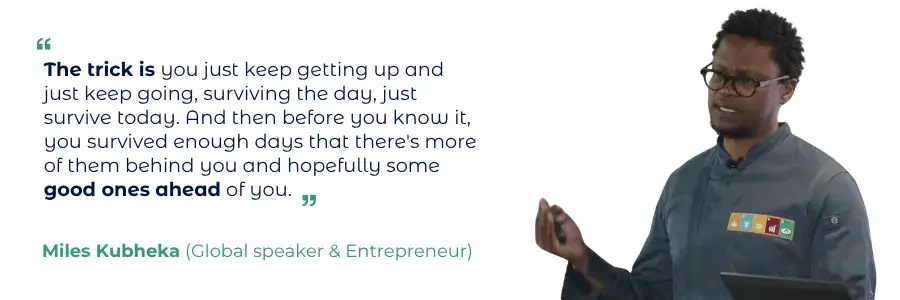
2. He Scales with Quality First
Forget the startup hype about growing fast. Miles takes a smarter path, prioritising quality over rapid expansion. With Gcwalisa stores receiving daily franchise requests, he has every opportunity to cash in quickly. Instead, his engineering mindset spots the risks of rushing.
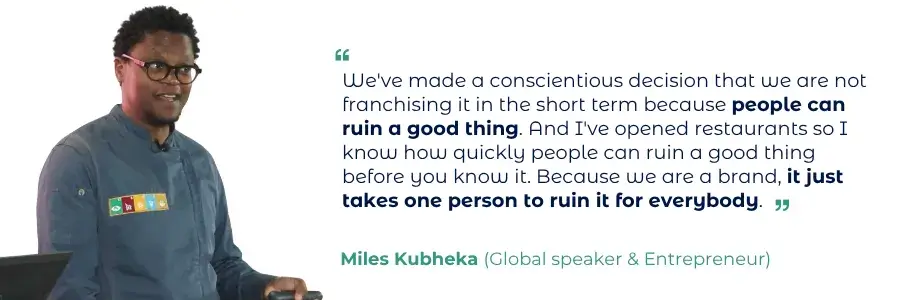
Miles perfects his Gcwalisa model in one township before moving to others. He tackles real problems, like how poor people pay more for smaller pack sizes (Poverty Tax). Instead of chasing growth in numbers, he focuses on what customers actually need.
How can you use this?
🟢 Perfect your business model in one market.
🟢 Say no to partnerships that could damage your brand.
🟢 Build systems that can handle growth without breaking.
When you prioritise quality over quantity, you build a business that customers trust and competitors can’t easily replicate. But scaling smart is only part of the equation. You also need to understand what truly drives human behaviour.
3. He Built People-Centred Businesses
Most entrepreneurs focus on products, but Miles designed a business around human needs. Using systems thinking, he spotted the “Poverty Tax” costing the poor more for smaller packs of food and launched Gcwalisa’s unit-pricing model.
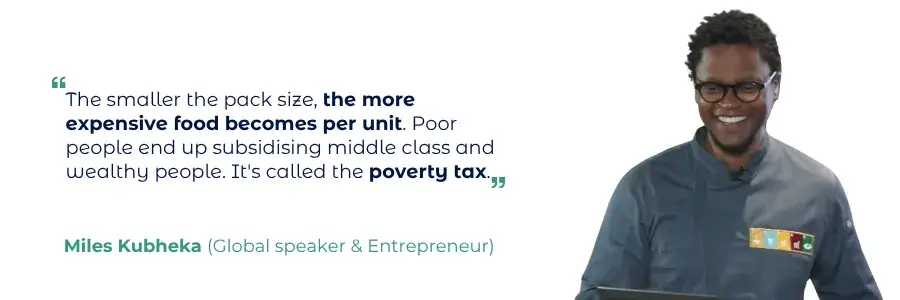
Through practices like observing customer queues to understand their behaviours and empowering unemployed youth, Miles turns social insights into growth opportunities.
Put This Into Practice:
✔️ Study your customers’ behaviour to understand their real needs.
✔️ Find the gaps your competitors don’t see.
✔️ Build around what people actually want, not just what works.
Understanding human needs creates deeper customer loyalty than any marketing campaign ever could. Yet even the best insights mean nothing if your team can’t act on them quickly.
4. Miles Trusts His Teams to Shine
Conventional CEOs rely on rigid hierarchies, but Miles trusts frontline staff to call the shots. Drawing from his Microsoft experience, he allows employees to make adjustments and solve customer problems without waiting for approval. “The person who’s closest to the customer should have the most power to make the decision,” he says.
By hiring energetic youth as brand evangelists and calling them ‘Vuyoneurs’, Miles builds internal trust and loyalty.
Your takeaways:
⚪ Give your team freedom to make customer decisions.
⚪ Hire for passion, rather than skills alone (they will learn as they go).
⚪ Let your team become brand evangelists by making them feel valued and empowered.
When your team can fix problems on the spot, customers are happier, and you can focus on growing the business instead of putting out fires.
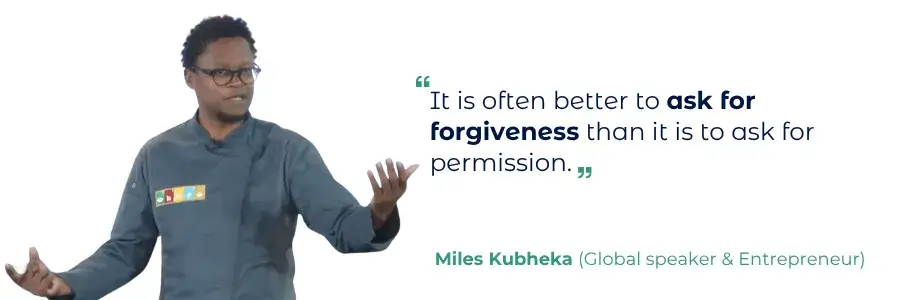
5. Miles Launched His Business Before It Was Perfect
While traditional food businesses spend months perfecting recipes and locations, Miles applied Microsoft’s software philosophy to food retail. He launched his boerewors rolls at 80% quality, then used customer feedback and revenue to improve.
Miles started with a basic boerewors roll and evolved it through nine versions, eventually selling a R150 gourmet version that customers loved. By listening to customers and making changes based on their feedback, he avoided the perfectionist trap that kills many startups.
How you can put this into action: → Launch with a “good enough” version and improve based on customer feedback → While listening to customer feedback, use early revenue to fund improvements rather than waiting for perfection
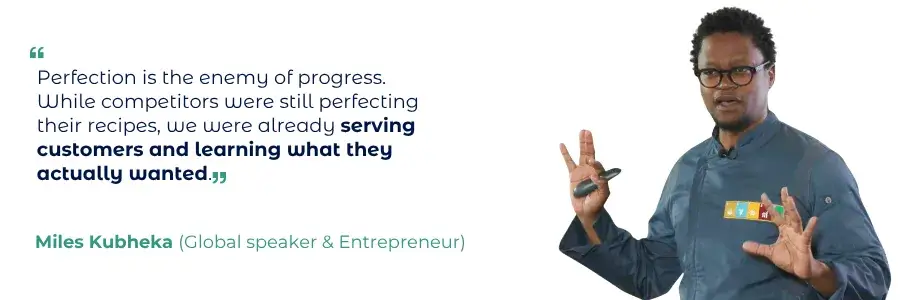
Miles went from Microsoft systems engineer to food industry CEO by breaking every rule in the book. He;
→ Treats failure as valuable data.
→ Scales slowly when everyone says go fast.
→ Builds around human psychology rather than products alone.
→ Gives frontline teams real power, and launches imperfect ideas that get better over time.
Being an unconventional CEO means using what makes you different as your competitive advantage. Miles succeeded because he was an outsider, bringing systems thinking to an industry that desperately needed a fresh perspective. He solved problems that food industry veterans couldn’t see.
Your unconventional background could be exactly what your industry needs. The real question is whether you’re brave enough to use it.
💭 Question for reflection:
What unique perspective from your background could shake up your industry? What outdated rules are you ready to challenge? How will your outsider advantage help you build something meaningful?
🎥 Ready to discover more of Miles’ tips on business success? Watch his full talk from Edge Growth’s Investee Day on YouTube. He shares more strategies for becoming the unconventional CEO your industry is waiting for. Watch here
Event Host: Daniel Hatfield (CEO of Edge Growth) Featured Speaker: Miles Kubheka (Global Speaker and Entrepreneur)

